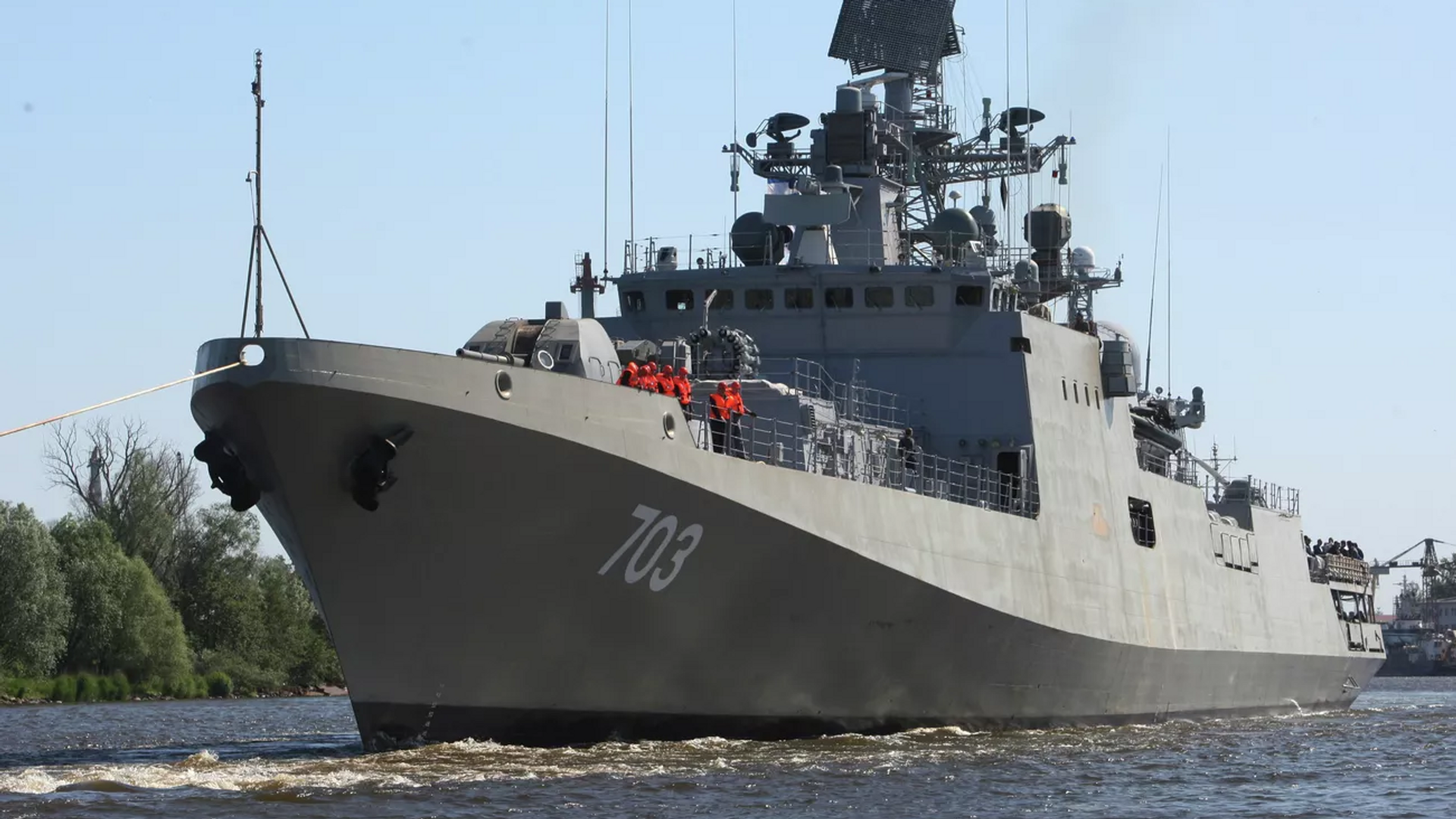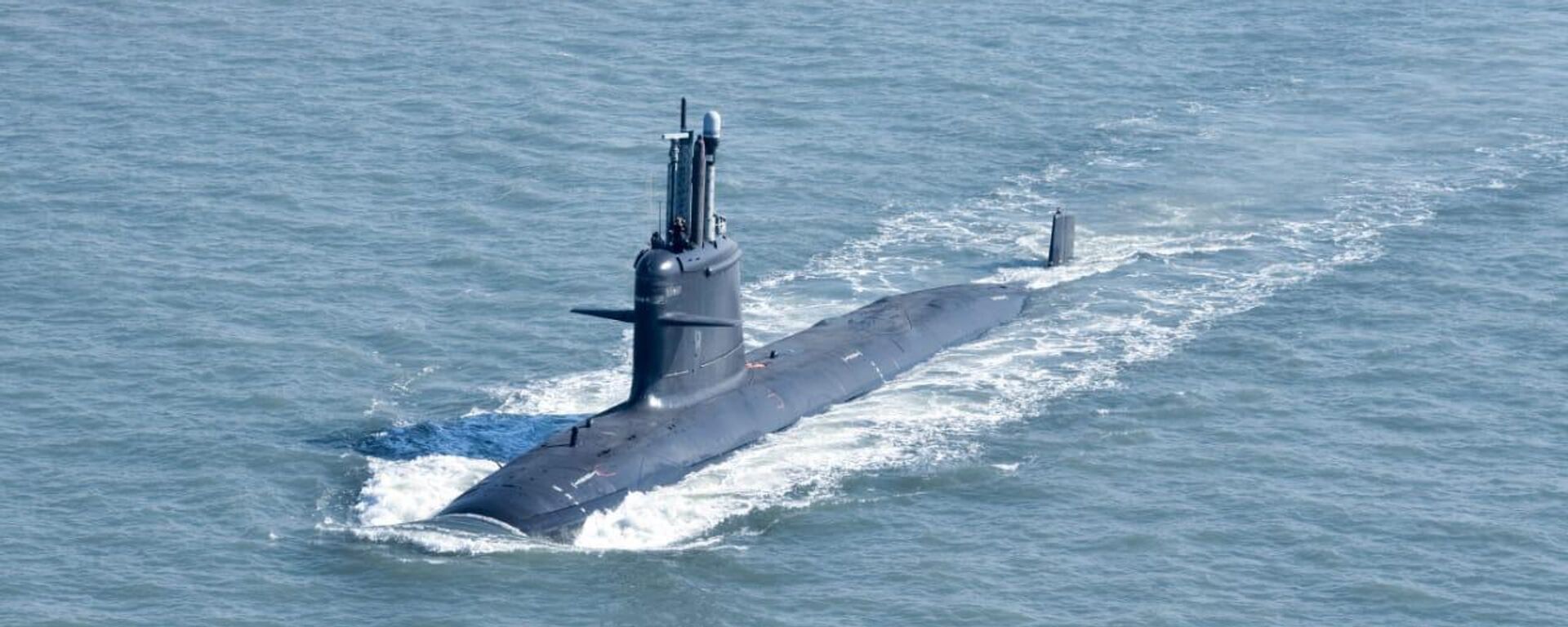Protecting India's Economic Lifelines: Navy's Critical Role in Safeguarding Sea Trade

© Sputnik / Igor Zarembo
Subscribe
Tensions between Israel and its arch-nemesis Iran and its allies in the Middle East have severely hit the global economy, particularly due to disruptions in maritime trade.
Israel's attacks on Hamas, Hezbollah, and Houthis, who together form the Axis of Resistance, are hurting global oil prices, resulting in slow economic growth in the world, but the Indian Navy's pro-active role in safeguarding India's economic interests has ensured that the South Asian country's economy remains unimpacted, strategic affairs pundits have said.
According to Ranjit Rai (Retd), a former Director Naval Intelligence in the Indian Navy, the situation between Israel and Iran has yet to emanate into full-blown conflict despite Iran's 200 missile attack on Israel.
"Still, Israel's attacks on Hamas, Hezbollah, and Houthis will have a more severe effect on shipping and economy in the Suez and the Middle East, leading to inflated oil prices and a slowed world economy," Rai told Sputnik India.
Nonetheless, the long-drawn turmoil in the Middle East hasn't affected India much, thanks to the Indian Navy.
The naval expert noted that India has a strong and versatile Navy. It is deployed to keep shipping safe by patrolling the Red Sea and is ready to escort Indian merchant shipping wherever the need arises.
"The Indian Navy's credo is to be the region's net security provider and the first responder, which does not adversely affect India's economy. Some support for ships in distress at sea is on a cure-no-pay basis," Rai added.
On the other hand, another Indian Navy veteran, Commander Rahul Verma (Retd) underlined that the Iran-Israel conflict has introduced new risks to India's trade and energy security, especially regarding the supply of petroleum products. As critical maritime routes like the Strait of Hormuz had become vulnerable, disruptions in oil shipments could become a regular fixture.
He highlighted that India relies heavily on the Middle East for crude oil, with over 80% of its oil being imported, and a significant portion coming from the Gulf region, including Iran.
Verma argued that even a small threat to supply chains often leads to volatility in global oil prices. Any disruption caused by the conflict could raise prices, increasing India’s import bill and potentially triggering inflation domestically.
The retired Indian Navy officer remarked that India have to navigate complex relationships due to US sanctions on Iran. An escalated conflict could result in additional sanctions, further complicating India's ability to maintain a steady flow of oil from the region.
Indian Navy's role in Indian Ocean Region
Despite the grim outlook in West Asia, Verma credited the Indian Navy for playing a vital role in safeguarding India's sea trade and energy imports.
He reckoned that the Indian Navy's role as a "first responder" in the Indian Ocean Region (IOR), particularly amid the Middle Eastern crisis, has significant economic implications. Here's how:
Ensuring Stability in Trade and Energy Imports: The Navy's swift response to distress calls and proactive operations help prevent disruptions to maritime trade. For a country like India, which heavily depends on sea routes for oil and gas imports, the Navy’s ability to swiftly respond to crises ensures that energy supplies remain stable. A steady supply of energy is critical to controlling inflation and keeping industries running, thereby supporting the overall economy.
Building Confidence Among Trading Partners: India's ability to respond quickly to crises in the IOR strengthens confidence among international trading partners. The stability provided by the Navy reassures global shippers, companies, and insurers that Indian waters and shipping lanes are secure, which is vital for India’s export and import activities. This helps maintain India's attractiveness as a trading partner.
Reducing Economic Costs of Piracy and Terrorism: By conducting rescue operations and ensuring maritime security, the Indian Navy reduces the economic risks associated with piracy, terrorism, and conflict. Unchecked, these threats could lead to higher insurance costs for shipping, increased operational expenses for businesses, and disruption of supply chains, all of which would have a ripple effect on the Indian economy.
Boosting India's Strategic and Economic Position: The Navy's enhanced role in responding to regional crises bolsters India’s reputation as a regional security provider. This leadership position can translate into stronger diplomatic ties and economic cooperation with neighboring nations and international powers, thereby contributing to long-term economic benefits through trade and strategic partnerships.
Indian Navy's heightened vigilance and strategic deployments have been instrumental in securing vital shipping lanes, countering potential threats from piracy and asymmetric attacks in the region, such as the recent Operation MV Genco Picardy, where the Navy swiftly responded to a drone attack on a vessel in the Gulf of Aden, Aritra Banerjee, naval historian told Sputnik India.
"Amidst rising tensions in West Asia, the Indian Navy has strengthened its presence in the Indian Ocean, ensuring the safe passage of vessels transporting energy and goods. Recognized as the region's premier security provider, the Navy's proactive operations—such as rescuing hijacked vessels, securing fire-stricken ships, and countering piracy—have demonstrated its capability to respond to emergent maritime threats," he said in a conversation with Sputnik India.
Banerjee pointed out that the Indian Navy's swift response to distress calls in the Indian Ocean Region has a direct, positive impact on the Indian economy by ensuring the continuity and security of maritime trade.
"By averting crises—such as in Operation Lorenzo Pua 04, where Indian forces rescued a hijacked Sri Lankan vessel — the Navy not only protects Indian and regional vessels but also international trade routes essential for economic stability. Such operations strengthen India's economic security and reinforce its stature as a reliable and proactive maritime power, reassuring both domestic and international stakeholders," he concluded.


